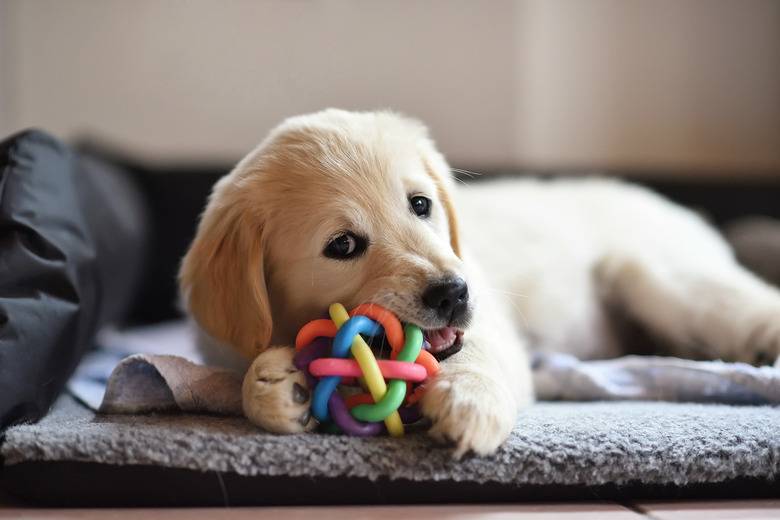Why Do Puppies Pant So Much?
Everything that puppies do is cute, including when they are panting and pacing, but you may not want your dog panting and pacing if it's a cause for alarm. Puppy panting could just mean that your puppy is cooling herself, but it could mean something more serious.
Normal puppy panting
When a puppy is panting, it's usually for the same reason that an adult dog would pant. Typically, dogs pant as a means of cooling themselves because they can't sweat through their skin like humans do. Panting because of hot or humid weather or exercise is normal.
The normal respiratory rate of a healthy dog ranges from 18 to 34 breaths per minute. Puppies breathe at a higher rate than this. Puppy panting is considered to be breathing at a rate of 10 times more than their normal breathing rate. The normal respiratory rate in puppies is 15 to 40 breaths per minute and up to 200 pants per minute.
Familiarize yourself with your puppy's normal breathing, and you will be better able to tell when her panting is not within the normal range. Small dogs and puppies tend to take faster breaths than large dogs.
Abnormal puppy panting
There are many causes of panting beyond hot weather and lots of running, which could mean that your puppy has run into a problem. Abnormal panting could be a sign of a respiratory problem, a heart condition, heat stroke, pain, Cushing's disease, anxiety or phobias. Abnormal panting won't look or feel like normal panting, so it requires getting to know what is normal panting for your dog.
You might notice your dog panting at times when you know it's not to cool himself. It may sound louder or harsher than his normal panting, or it may appear that he is putting more effort into panting than he normally does.
Dogs panting because of anxiety
Another sign of dog panting, anxiety, is a symptom shown by dogs who are stressed or fearful. A dog panting from anxiety will show other fearful behaviors such as whining, a tucked tail, hiding, trembling or flattened ears. If your dog is panting and pacing, this could be a sign of anxiety or fear of something in the environment.
Dogs panting at night
Abnormal dog panting is known as either dyspnea or tachypnea. Dyspnea means difficulty breathing and is a life-threatening emergency. Tachypnea means an increased respiratory rate. Sometimes, dyspnea follows tachypnea, so take any change in your pet's breathing rate as a potentially serious issue.
A sign of tachypnea could be your dog panting at night or coughing throughout the night. If he's having trouble breathing, he may also be stretching his neck out to breathe or sitting in a way that lets him take in more air, such as with the front legs spread widely apart.
Seek care for your puppy
If your puppy is panting more than usual and you can't figure out why she is doing it, it's a good idea to seek veterinary attention. For instance, puppies may pant more when they are injured or in pain, when they are running a fever or when they have some sort of respiratory problem. Many other health problems that you will want to get checked out may also manifest with panting as a symptom.
